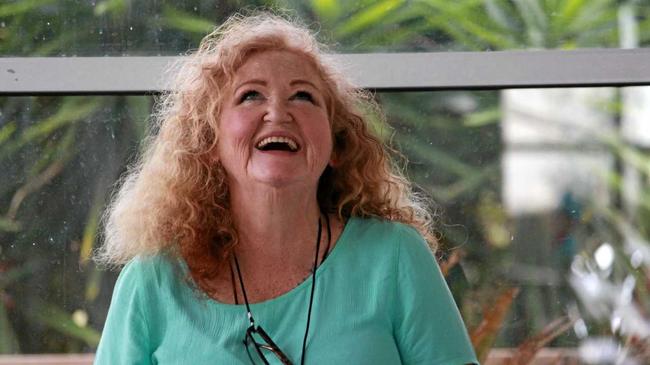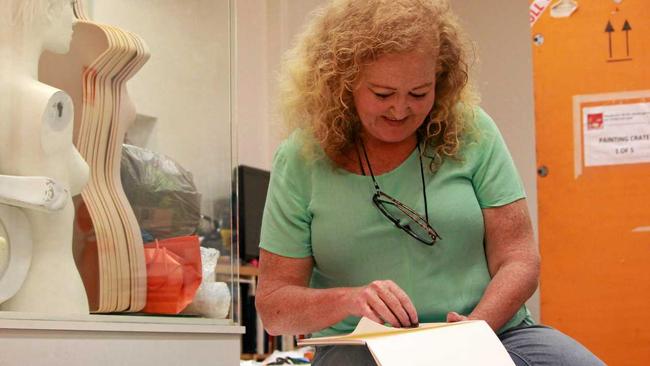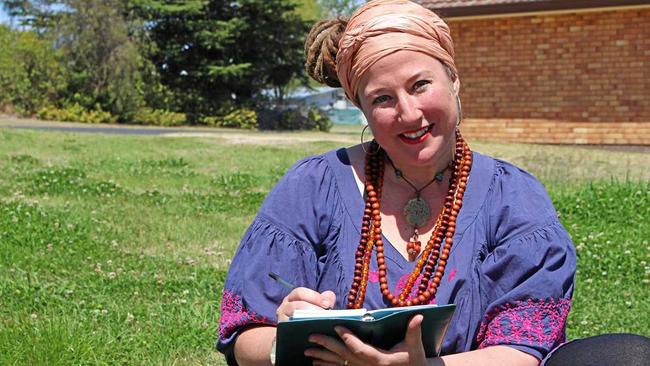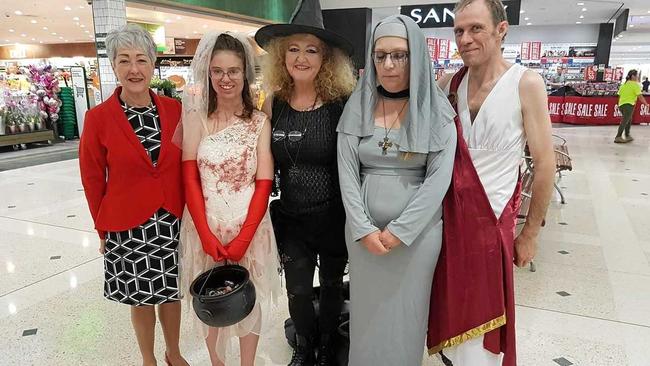Quirky groups filling the 'void' in mental health services
A SUITE of informal groups are taking the lead as Warwick and Stanthorpe mental health patients wait more than a year for access to NDIS.

Warwick
Don't miss out on the headlines from Warwick. Followed categories will be added to My News.
INFORMAL groups led by peers and volunteers are becoming a crucial part of the mental health treatment for people in the Southern Downs who have been waiting more than a year to access government-subsidised care.
Living with a personality disorder and chronic suicidal tendencies, Heidi Boundy said finding a group of friends who faced similar issues had "literally saved her life” when she "hit rock bottom” at the beginning of this year.
Now more confident, capable and in control of her emotions, Ms Boundy is one of the many "success stories” to come out of the Warwick Demented Artists Group, according to co-founder Corina Graham.
Mrs Graham said the group had been striving to fill a "void” in mental health services that was created when the Personal Helpers and Mentors (PHaMS) program ceased in the Southern Downs 2017.
Herself diagnosed with bipolar disorder and PTSD, Mrs Graham supports others in the community while living and coping with mental illnesses of her own.

"It's incredibly exhausting, it is. But we really do save lives and that's what keeps me going,” she said.
Growing from grassroots in a decrepit shed, the group has now become an official not-for-profit organisation that meets once a week at the Warwick Art Gallery.
Calling themselves the Demented Artists Group, or "Dags” for short, Mrs Graham said the group provided a safe space for people with a common experience of mental illness.
"It's not even so much about the art, but we found it was good to give people something to do while we meet up,” Mrs Graham said.
Caring too much?
While passionate about peer-led support, Mrs Graham said the burden on peers and unpaid volunteers could be mentally and emotionally draining.
She and others have been lobbying for the reintroduction of PHaMS, which employed people with a lived experience to provide care and assistance for people severely impacted by mental illness.
"Sometimes you really need someone on the floor, people that can take them to appointments, help them out at home and check in on them when they're not coping,” Mrs Graham said.
"Without that I am scared for people in this area.”
Stanthorpe-based carer Kath Ives has also been pushing to have services reinstated in her role with Happy Chat, a mental health peer support group in Stanthorpe.
Mrs Ives said the informal drop-in group consisted of people with an experience of mild to severe mental illness, but some volunteers had started taking on a more involved role for other members of the group.
"Now they are actually stepping up to help these people who are very unwell in their own homes, but as carers we burn out,” she said.

"Relying on volunteers in this predicament is very unfair. I am a strong believer that volunteers should not be carrying the burden of services that should already be here and should be government funded.”
Warwick-based psychologist Mark Cary agreed there was a "gap”.
"Certainly the withdrawal of that PHaMS program hasn't been quickly filled by anything comparable,” he said.
In the past two weeks, funding has been announced to bring back the PHaMS program for eight months with a new focus on helping people with severe and permanent mental illness access the NDIS.
Lifeline Darling Downs CEO Derek Tuffield said the organisation had recently obtained funding until June 2019 to employ a full-time support worker who would assist between 30 and 40 people in the Warwick and Southern Downs region.
Mr Tuffield said the funding was time-limited.
"I have to get this going and restart things by June next year and be ready to make sure these clients are best supported they can be,” he said.
Mental health help coming
A Department of Social Services spokeswoman said government funding for mental health services was increasing, not decreasing.

According to the Australian Bureau of Statistics, 4.5 per cent of Australians reported having a psychosocial disability.
The spokeswoman said existing PHaMs clients who were not eligible for the NDIS would be assisted through the Continuity of Support arrangements.
"This means existing clients who are ineligible for the NDIS will be supported to achieve similar outcomes, even if the arrangements for doing that change over time,” she said.
Mr Tuffield said people could access mental health support through the PHaMS program by contacting Lifeline on 1300 991 443 during normal business hours.
If you or anyone you know has been affected by this story, you can get immediate help 24/7 - phone Lifeline on 13 11 14 or beyondblue on 1300 224 636.


